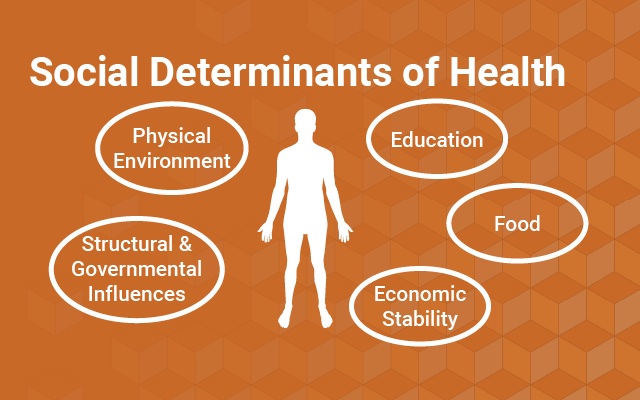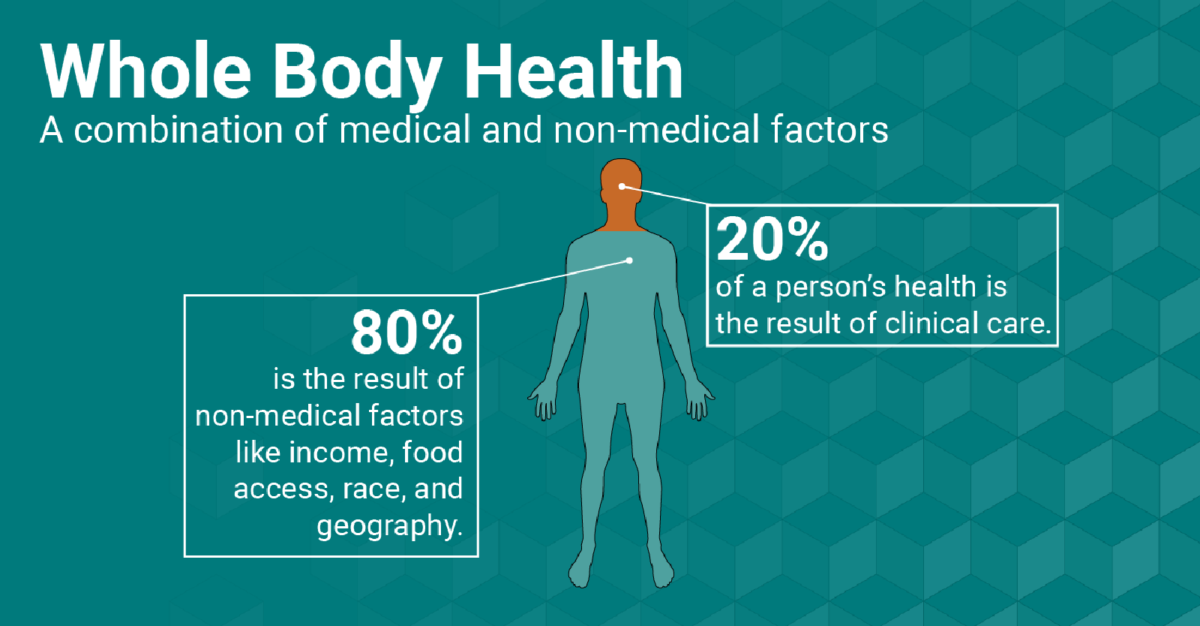
Only 20 percent of a person’s health is the result of clinical care in a medical or dental provider’s office. The other 80 percent comes from a variety of non-medical factors. To reach equity in oral health, our health care system must address that 80 percent, which means accounting for external influences in patients’ lives.
From the food we eat to our housing and transportation options, many aspects of our daily lives can impact our health. Social determinants of health, also known as non-medical drivers of health, refer to the wide variety of influences outside the provider’s office that can directly or indirectly impact health outcomes.
Take food option-driven obesity as an example. If fast food makes up most of our mealtime options, the high-sugar, high-carb food we consume regularly will likely contribute to obesity, risk for heart disease, and increase the risk of tooth decay.
When it comes to oral health specifically, there are clear disparities in access to care and outcomes in North Carolina. Race, economic status, and geographic location are all important oral health determinants. For example, while around 20 percent of all children in our state experience tooth decay, roughly 50 percent of children in low- income families are affected.
Social determinants of health broadly fit into five categories: economic stability, physical environment, education, food, and structural and governmental influences. Each of these categories contains several specific factors. For example, employment, income, insurance, debt, and financial support all fall under the economic stability umbrella.

To better understand social determinants of health and how they can impact oral health outcomes, NCOHC will dive deep into each of these five categories over the coming months. We will discuss how the income an individual earns and the county in which they reside can directly impact their oral health, and we will explore how the state and federal policies cascade down to the local level, affecting health care opportunities among communities that traditionally lack access.
At the end of the day, policy change is a vital step in the process of addressing social determinants of health to create a truly equitable landscape for oral health care in North Carolina. That is why NCOHC engages elected officials and regulatory bodies to enact positive policy changes like that of the recent regulatory amendment to rule 16W .0104.
To learn more and get involved, visit our Oral Health Day 2020 page to see what we are planning for our signature advocacy event on June 3rd . If you’d like to receive updates on stories like this directly to your inbox, be sure to sign up for NCOHC news.
NCOHC is a program of the Foundation for Health Leadership & Innovation. For more information and to stay up to date, subscribe to the NCOHC newsletter. If you are interested in becoming an NCOHC member, you can also fill out our membership form. It’s free!


